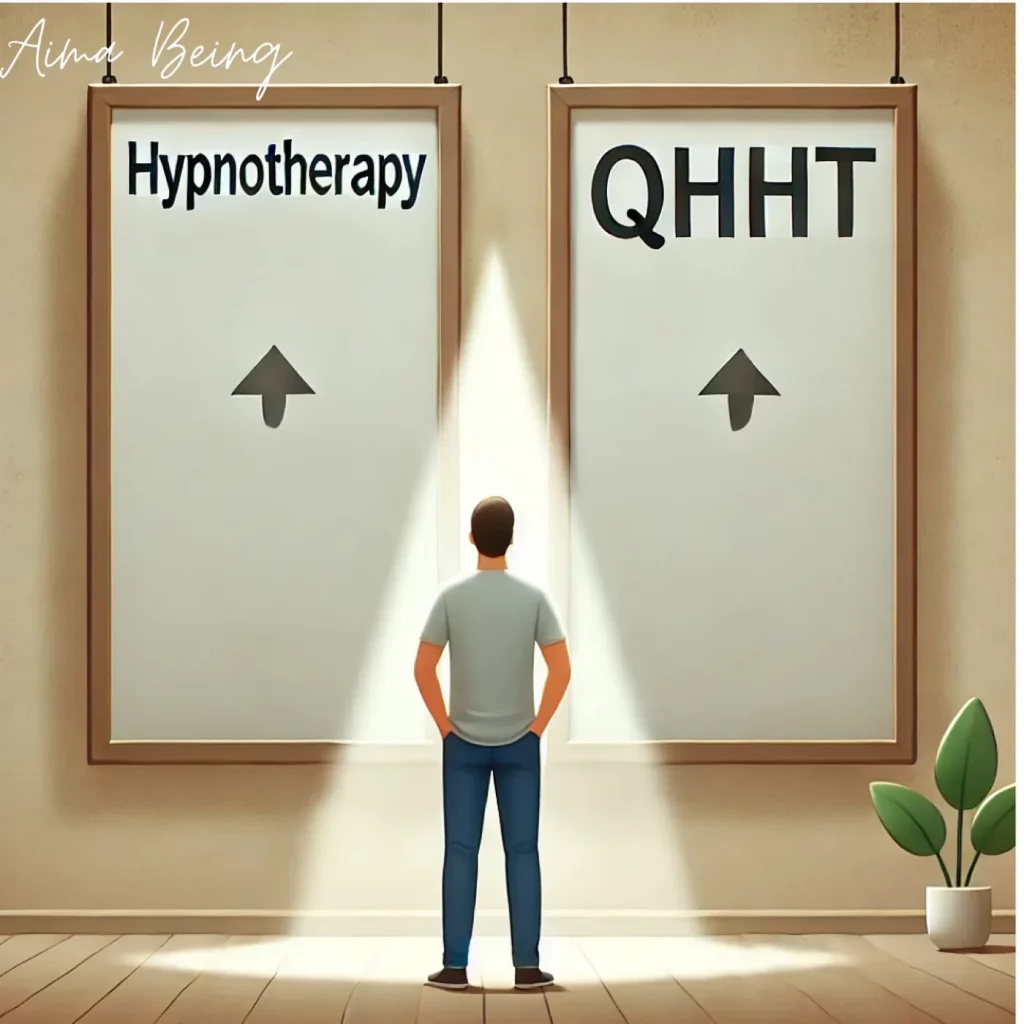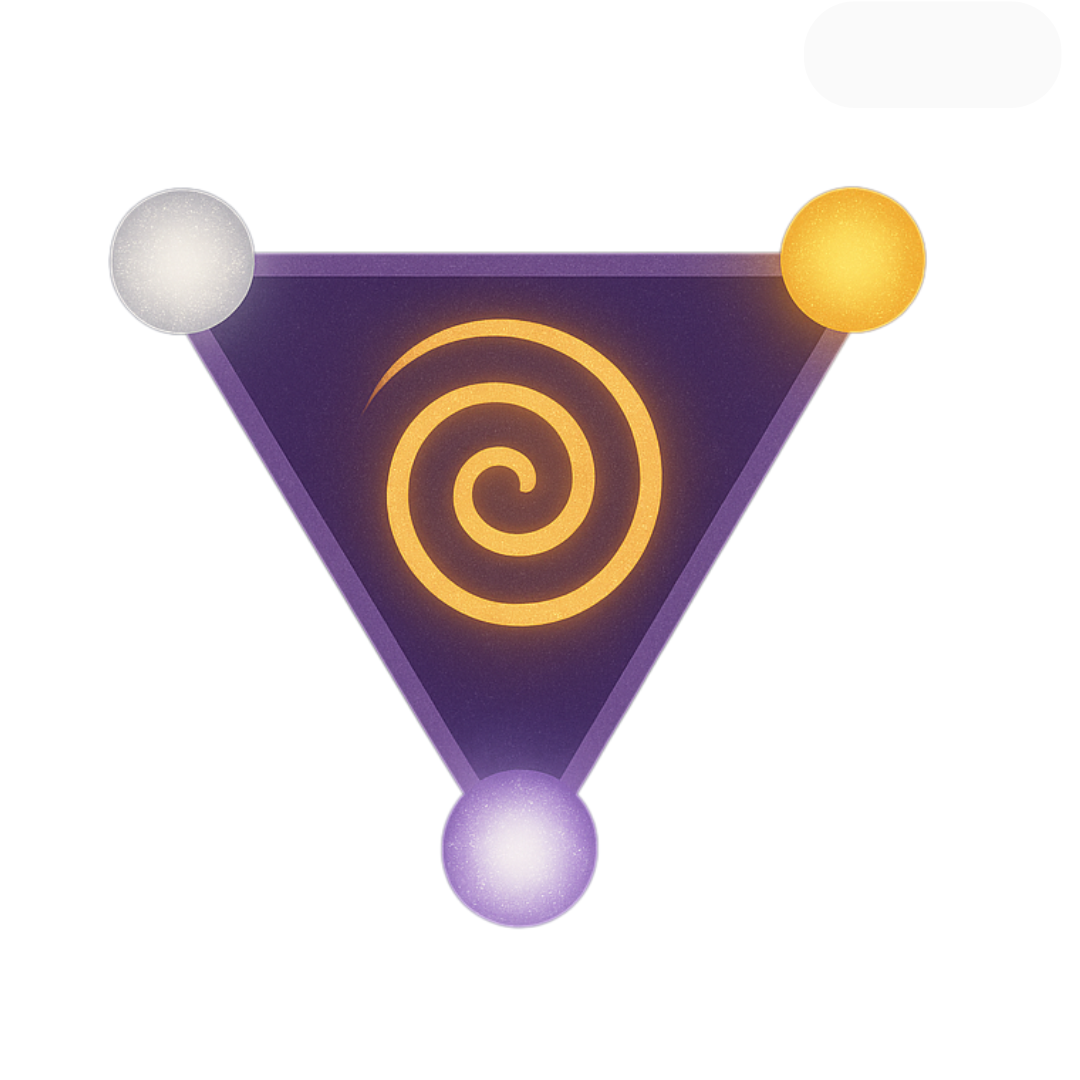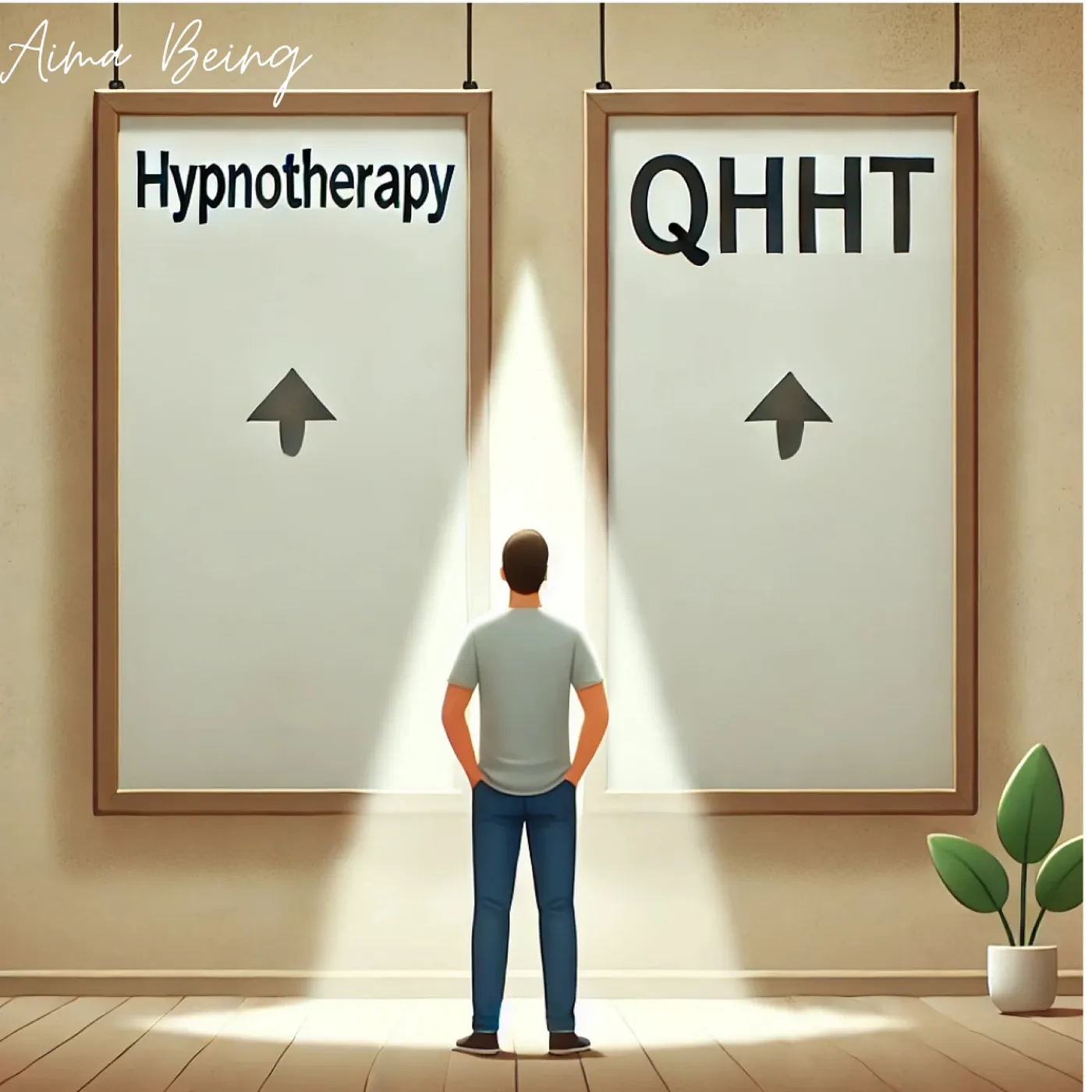Exploring the Unique Benefits of QHHT for Healing and Transformation.

In recent years, hypnotherapy has become a popular tool for addressing mental, emotional, and behavioral challenges by tapping into the subconscious mind. However, not all hypnotherapy methods are created equal. Among the many approaches, Quantum Healing Hypnosis Technique (QHHT) – developed by Dolores Cannon – stands out as a spiritually immersive practice that goes beyond modifying behavior or alleviating symptoms.
QHHT offers deep healing by guiding clients into past lives and connecting them with their Higher Self – the part of the subconscious that holds wisdom and insight beyond ordinary awareness. While both traditional hypnotherapy and QHHT use hypnosis as a tool, they serve different purposes. This article explores the mechanics and applications of both practices, providing a clear contrast to help you determine which approach might be the right fit for you.
- What Is Hypnotherapy and How Does It Work?
Hypnotherapy is a guided therapeutic process that uses focused relaxation and heightened attention to access the subconscious mind. In this trance state, the mind becomes more open to suggestions that can help change unwanted habits, behaviors, or emotions. For instance, a hypnotherapist may suggest alternative ways of coping with anxiety, reinforce positive thinking, or replace unhealthy habits with more constructive ones. The goal is to reframe negative patterns and create new associations that better serve the individual.
QHHT, however, goes beyond the typical goals of hypnotherapy. It uses hypnosis to take clients to past life experiences and facilitates a connection with their Higher Self, an elevated state of consciousness that holds answers to life’s most profound questions. In this state, QHHT clients can gain insights, receive healing, and uncover the root causes of emotional or physical challenges.
2. What Do You Do During Hypnotherapy?
In a traditional hypnotherapy session, the practitioner helps the client enter a deeply relaxed state and offers carefully chosen suggestions to address specific issues such as quitting smoking, reducing anxiety, or managing chronic pain. The session may involve visualizations, affirmations, or guided imagery, all aimed at influencing the subconscious mind to make positive changes.
A QHHT session follows a different structure, involving two primary stages:
1. Past Life Regression: The client is guided to experience past lives, uncovering memories that may provide insight into their current life’s challenges. These experiences often reveal patterns or unresolved issues that need healing.
2. Connection with the Higher Self: In the second part of the session, the practitioner communicates directly with the client’s Higher Self. This part provides personal guidance and, in many cases, offers spontaneous healing for physical ailments or emotional pain.
3. What Is the Role of a Hypnotherapist or QHHT Practitioner?
Both traditional hypnotherapists and QHHT practitioners serve as guides who facilitate the client’s journey into the subconscious mind. However, the role of a QHHT practitioner is more intricate. They must navigate the client through multiple levels of consciousness – from the present moment to past lives and into the Higher Self. Practitioners like Aima Being pay close attention to body language, tone, and subtle energy shifts to ensure the client remains deeply immersed in the theta state – a deeply relaxed state that is essential for QHHT’s success.
Additionally, the practitioner ensures that the client feels safe and supported throughout the session, particularly when encountering emotionally intense memories or profound insights.
4. What Is Hypnotherapy Best Used For?
Traditional hypnotherapy is commonly used for behavioral changes, phobias, trauma, chronic pain, and anxiety management. It works by reframing subconscious beliefs and emotional associations to replace negative patterns with healthier ones. For example, it is often used to quit smoking, manage stress, and overcome fears.
QHHT, however, is ideal for people who want to go deeper and uncover the backstory behind their behaviors and patterns. Rather than just addressing symptoms, QHHT helps clients find the root cause of triggers, which may stem from either this life or a past life. Through regression and dialogue with the Higher Self, the subconscious can reprogram itself to stop the behavior or symptom from operating. This makes QHHT particularly effective for resolving deeper issues that traditional hypnotherapy may not reach.
Additionally, QHHT offers spiritual insight, allowing clients to connect with their Higher Self for guidance on life’s purpose, relationships, or health challenges. This makes it a powerful tool for those seeking personal transformation and clarity on the bigger picture of their life.
If you’re ready to explore your subconscious mind and unlock the wisdom of your Higher Self, Aima Being is here to guide you. Book your in-person QHHT session today at aimabeing.com and discover the life-changing power of QHHT..
5. What Are the Disadvantages of Hypnotherapy
While hypnotherapy can be effective, some people struggle to achieve the deep relaxation required for a productive session. In many cases, hypnotherapy focuses on managing symptoms rather than identifying and healing the root cause of the issue.
In comparison, QHHT offers a more comprehensive healing experience, addressing emotional, spiritual, and physical blocks at their source. However, QHHT sessions are longer, often lasting several hours, which may not suit those seeking shorter therapeutic solutions.
6. Do You Talk During Hypnotherapy or QHHT?
Yes, communication between the client and practitioner is essential in both practices. In traditional hypnotherapy, the dialogue revolves around reinforcing positive suggestions and guiding the client through visualizations.
In QHHT, the process is more interactive. Clients actively describe their past life experiences during regression and may channel insights from their Higher Self. This dialogue ensures the practitioner can guide the session effectively and help the client fully access the benefits of the theta state.
7. Who Should Not Have Hypnotherapy or QHHT?
Both hypnotherapy and QHHT are not recommended for individuals with severe psychiatric conditions, such as schizophrenia, or those who struggle with distinguishing reality from imagination.
8. Is Hypnotherapy (and QHHT) Really Effective?
Both hypnotherapy and QHHT have proven to be highly effective for different purposes:
QHHT offers deeper emotional and spiritual healing, with many clients reporting spontaneous physical recovery and breakthroughs that other therapies couldn’t achieve.


9. What Happens to Your Body During Hypnosis?
Hypnotherapy excels in managing anxiety, phobias, and behavioral issues. Many clients experience significant improvement over time through multiple sessions.
During hypnosis, the brain enters the theta wave state, a state of deep relaxation that also occurs just before sleep or upon waking. In this state, the thalamus, which filters sensory information, becomes less active, giving the client access to the right hemisphere of the brain – where memories, emotions, and intuition are stored.
While the body remains calm and still, the mind becomes more open and receptive. In QHHT, this state allows clients to explore past lives and communicate directly with their Higher Self.
10. Are You Awake During Hypnotherapy?
Yes, clients remain awake and aware during both traditional hypnotherapy and QHHT. Many describe the experience as dreamlike but are conscious enough to respond to questions and recall their experiences afterward.
11. Does Insurance Cover Hypnotherapy or QHHT?
While some insurance providers cover traditional hypnotherapy when used for mental health or pain management.
12. What Is the Success Rate of Hypnotherapy and QHHT?
The success rate of hypnotherapy depends on the issue being addressed, with studies showing high effectiveness for anxiety, phobias, and pain management.
QHHT’s effectiveness is measured differently, as it focuses more on emotional and spiritual transformation. Many clients report lifelong changes after a single session, gaining clarity, healing, and peace.
13. How Much Does a Hypnotherapy or QHHT Session Cost?
Traditional hypnotherapy sessions typically range from $100 to $300.
QHHT sessions, which are longer and more immersive, range from $300 to $1200 and can last up to seven hours, including the interview, past life regression, and connection with the Higher Self.
Why Must QHHT Be Conducted In-Person?
Unlike traditional hypnotherapy, which can sometimes be conducted online, QHHT must be done in person. This allows the practitioner to observe subtle physical and emotional cues, ensuring the client remains fully supported. In-person interaction also ensures the trust necessary for clients to relax deeply into the theta state.

